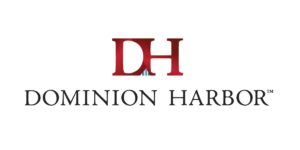Pridham is a critic of the IPR process, and told IHP the PTAB is “doing terrible things for the innovation economy.”
Reprint from November 13, 3017 InsideHealthPolicy.com
While the validity of Allergan’s controversial deal with the Saint Regis tribe won’t be decided by the Patent Trial and Appeal Board (PTAB) until April 2018, a number of law firms are already shopping similar arrangements to clients, including tribes and public universities, and at least 20 to 30 companies are already penning such deals, an intellectual property expert tells Inside Health Policy. Facing the prospect of the controversial tribe scheme spreading, critics are urging swift congressional action while others see the move as a logical way to address an allegedly broken PTAB system.
David Pridham, chairman and CEO at Dominion Harbor, told IHP that law firms are already pitching similar deals to potential pharma clients.
“It’s sort of like one of those new tax packages or tax loopholes that law firms get a hold of it and start pitching to clients. There are dozens of firms pitching this type of prepackaged IPR vehicle for lack of a better word to patent owners big and small. In particular in the pharma space where a couple of patents can control billions of dollars in revenue, you’re seeing more firms pitch this. And I think it’s going to ramp up once folks see what happens once this is tested at the PTAB and potentially goes up to the Federal Circuit,” Pridham told IHP.
“Folks are setting these up,” Pridham said. “You’ll see 20 or 30 of these assignments take place especially with high value portfolios. You’re going to see more and more in the tech sector. But if this is upheld and if the PTAB doesn’t get better then you’re going to see a few hundred of these next year. So these people are cautiously getting into the pool, but it’s not pervasive yet. But it will be if no changes come to the PTAB.”
Pridham cautioned that deals are not yet public given “you won’t see the assignment until just before they’re ready to spring it on the PTAB — the motion to dismiss.”
Companies also may delay making these deals until they see whether changes occur in short order at the PTAB, including the effect of an upcoming U.S. Supreme Court case examining the constitutionality of the IPR process and the pending appointment of a new PTAB director.
“I do think people are a little bit cautious, one because they want to see what the PTAB is going to do and because there are hedges out there against the PTAB in the near future like … the Oil States case [and] the new director at the Patent Office, who has not been confirmed yet but once [Andrei] Iancu gets confirmed that general consensus is he is going to rein in the PTAB,” Pridham said.
One Democratic senator has already introduced legislation aimed at stripping Native American tribes of their sovereign immunity, and another top House Republican promised in a House Judiciary hearing held Tuesday (Nov. 7) to write legislation meant to pacify both sides of the IPR debate.
One witness at Tuesday’s hearing cautioned that if Congress singles out tribes, states will step in to fill the void and begin penning these lucrative deals.
Pridham says lawyers are already approaching state universities, which also have sovereign immunity, to set up these deals. “Lawyers and smart patent owners are approaching university contacts and similar to what’s happening with the prepackaged tribe deals and they’re saying, ‘Look, we’ve got this opportunity for the university to create a revenue stream, we want to protect our patents, so it’s a win-win.’ So that’s something that is happening,” Pridham added.
But Pridham does not fault companies for pursuing these arrangements. “I don’t blame patent owners for doing anything they can within their roles to protect their patents, but it’s sort of an absurd response to a more absurd system,” Pridham said.
Pridham is a critic of the IPR process, and told IHP the PTAB is “doing terrible things for the innovation economy.”
– – Nicholas Florko (nflorko@iwpnews.com)
